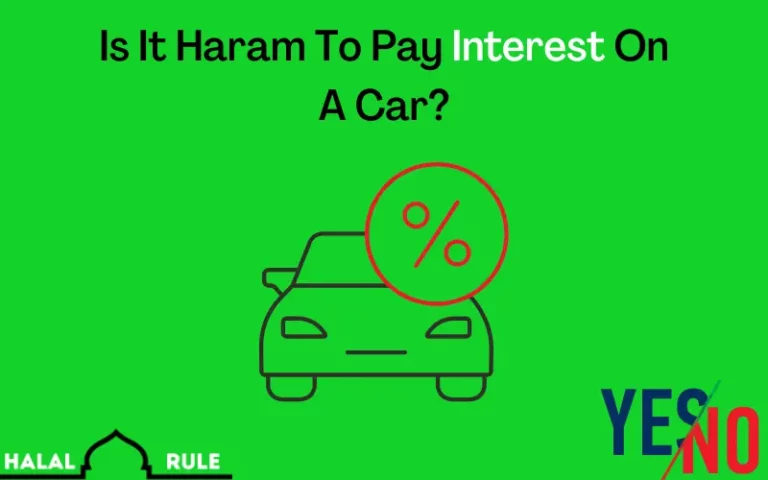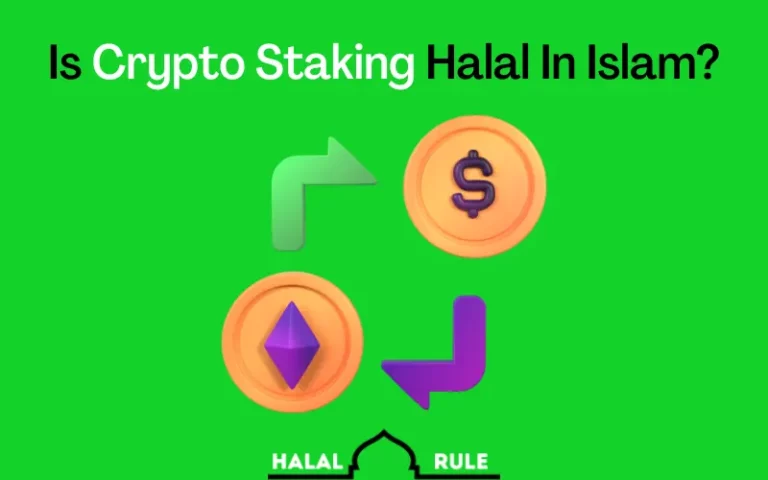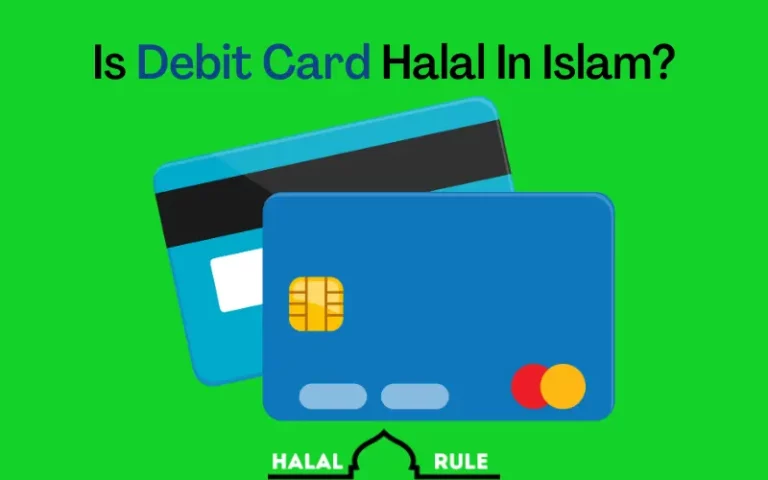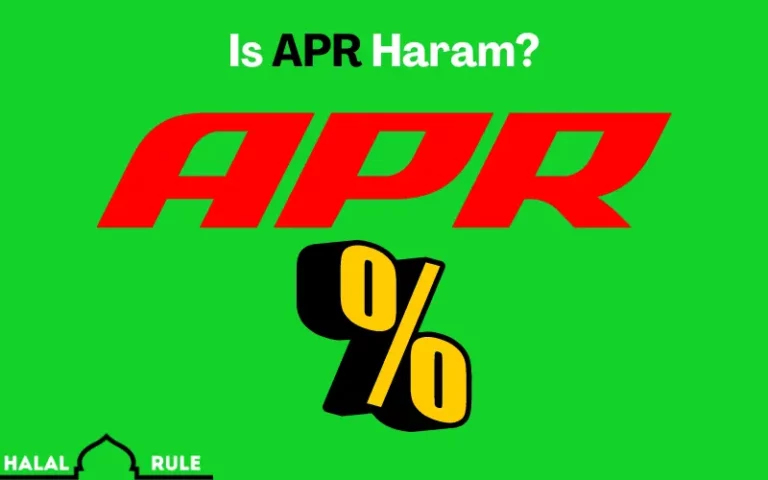Is Home Loan Halal In Islam? (Yes/No)
In today’s time, buying a house is becoming a difficult task due to financial constraints and the price of houses. Many people opt to take home loans from banks and other financial institutions to make this process easier.
For Muslims, one of the key issues while taking a home loan is whether it is permissible or not, as per Islamic Laws. This is because it includes interest which is not permissible in Islam. So, a person needs to understand the laws and regulations associated with taking a home loan before proceeding further.
In this blog post, we will answer is home loan halal or haram. We will also discuss the alternatives available to Muslims for buying a house.
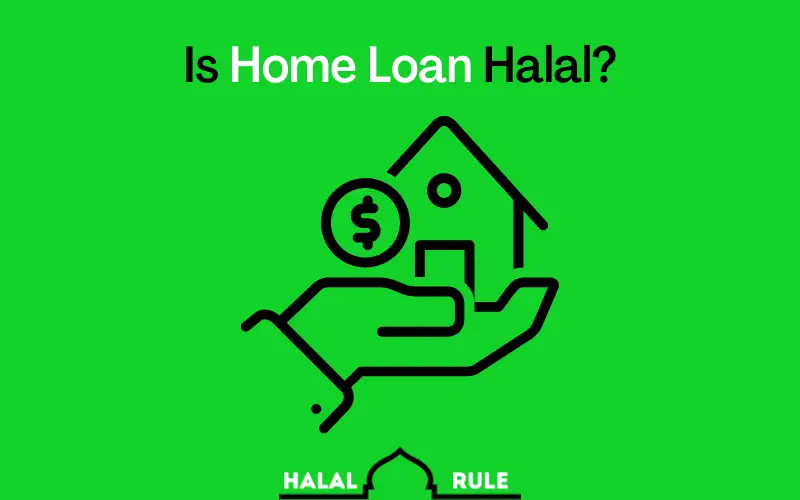
Is Home Loan Halal?
If you take a loan from a conventional bank, then it is considered haram. This is because these institutions charge interest on the loan amount, and Islam does not allow giving or receiving interest.
However, if you take a loan from Islamic Banks based on principles derived from Sharia Law, it is considered halal.
A Muslim bank loan is halal because they buy the house first and then sell it to you at a slightly higher price (same as interest, but not interest), and you pay in installments to the bank.
Otherwise, taking a loan from other conventional banks is haram.
Also note that if you’re badly in need of a house and you have no other option than to take a loan from conventional banks, you may opt for it. However, you should try your best to look for other alternatives like an Islamic bank or get a rental house.
For example, if you’re old and need to get Nikah, but the family of the person you want to Nikah forces you to have your own house (not a rental also), then in this case, you may go for a conventional bank loan also.
Note that this is allowed only if you have no other option. Otherwise, taking a loan, including interest, is like eating meat or a dead animal, which Islam does not allow.
You can also read related article on is car financing halal?
Alternatives To Home Loans In Islam
Here are some of the alternative options that a Muslim can consider while buying a house:
Islamic Banks: As mentioned earlier, you can take loans from Islamic banks that provide loans based on principles derived from Sharia Law and without charging any interest.
Rental Houses: You can also get a rental house instead of buying one; this is an ideal solution for those who don’t have enough money to buy a house.
Savings: You can also save some money from your income and use it to buy a house. This is the best option if you can manage to save some money from your income.
Look For Affordable Houses: You can also look for houses within your budget and easily buy them without taking any loans.
Also, read the Islamic view on is leasing a car halal.
Understanding The Concept Of Riba In Islam
Riba, which translates to “interest” in English, is the concept of charging a fee for money in loans. In Islam, Riba is prohibited as it is considered an unjust practice and goes against the principles of fairness and equality.
The Qur’an explicitly forbids Riba and considers it to be a major sin.
Surah Al-Baqarah states:
“Those who charge usury are in the same position as those controlled by the devil’s influence. This is because they claim that usury is the same as commerce. However, God permits commerce and prohibits usury.” (Qur’an 2:275)
Successful Islamic Home Financing Models
Islamic financing models have been gaining popularity in recent years, with a focus on ethical and fair practices.
One such model is the Musharakah Mutanaqisah, which is a joint partnership between the bank and the borrower to purchase the property.
The bank contributes a certain percentage of the property’s cost while the borrower pays the remaining amount through monthly installments. Once the mortgage is paid off, the ownership of the property is transferred to the borrower.
Another model commonly used is Murabaha, where the bank purchases the property and then sells it to the borrower at a higher price.
The borrower pays back this amount in installments, similar to a conventional loan. However, there are no interest charges in this model as the profit margin is agreed upon upfront.
The Difference Between Islamic And Conventional Home Loans
The main difference between an Islamic home loan and a conventional one is the absence of interest charges in the former. In addition, as per Sharia Law, the lender also shares some risk with the borrower in case of default or loss of property value.
Moreover, Islamic home loans are more transparent in their process and do not involve hidden fees or charges. This promotes a fair and ethical system for both the lender and the borrower.
Islamic banks buy property or anything you want such as a house, or land. The bank then sells it to you at a higher price than its original cost (including profit) but allows for installment payments without charging any interest.
If you’re into real estate business, you must learn is real estate halal.
FAQs
Q. Can Muslims take out a home loan?
A. In Islam taking any kind of loan (including a home loan) is haram (forbidden), except loans from Islamic Banks that provide loans according to Sharia law.
Q. Is there no such thing as halal mortgage?
A. Yes, there are halal mortgages available from Islamic Banks that provide loans according to Sharia law without charging any interest.
Q. Is mortgage halal?
A. No, a mortgage from conventional banks is not halal as it includes interest which is not permissible in Islam. However, you can opt for loans from Islamic Banks that provide halal mortgages.
Q. Is home loan haram in Islam?
A. The answer to this question depends on your loan type. If you have a home loan from a conventional bank that involves riba (interest), then it is generally considered haram. However, if you take out an Islamic loan such as a Murabahah loan or Musharakah arrangement, then the terms of the loan are structured in accordance with Sharia law and thus halal.
Q. Is it haram to take a loan without interest?
A. Taking a loan without interest can be permissible as long as you keep to the terms of the agreement and have no intention to avoid repayment. However, it is important to remember that any interest-free loans should be taken in line with the guidelines of Sharia law, such as avoiding taking on too much debt or seeking out loans from sources that Sharia does not approve.
Q. How to buy a house without interest Islamically?
A. To buy a house without interest Islamically, one can opt for an Islamic home financings model such as Musharakah Mutanaqisah or Murabaha. These models are based on the principles of profit and loss sharing, making them halal alternatives to conventional loans. It is also important to research and choose a reputable Islamic bank that follows the guidelines of Sharia Law.
Also see is apr haram.
Conclusion
In conclusion, a home loan taken from conventional banks is not permissible in Islam, as it includes interest. If you still do it just for a better life without any need, it is like starting a war against Allah.
So make sure to consider Islamic banks and other alternatives like rental houses or saving money from your income before taking a loan from conventional banks.
It is best to avoid loans both for Islamic and financial reasons.
Hopefully, this blog post has clarified the issue of is home loan halal in Islam. May Allah (SWT) guide us all to the right path. Ameen.

